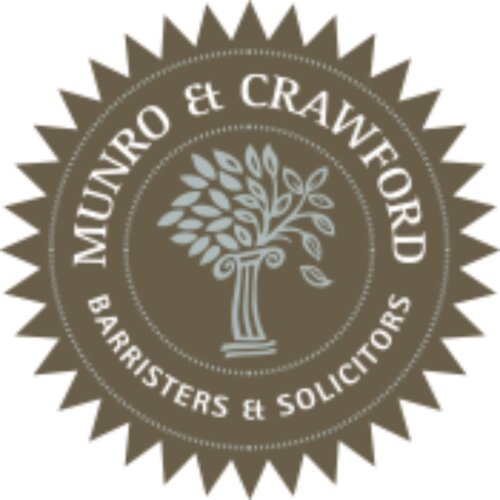Best Trusts Lawyers in Vancouver
Share your needs with us, get contacted by law firms.
Free. Takes 2 min.
List of the best lawyers in Vancouver, Canada
About Trusts Law in Vancouver, Canada
Trusts law in Vancouver, Canada falls under the domain of the British Columbia Trustee Act, common law precedents, and federal tax rules. A trust is a legal relationship where a person, known as the "trustee", holds legal title to property, known as the "trust property", and is obliged to manage it for the benefit of another person(s), called the "beneficiary". Trusts can be set up for various reasons, like to manage assets, minimize taxes, or plan estates. Knowledge of the complexities surrounding trusts law is crucial for any person wanting to set up or manage a trust.
Why You May Need a Lawyer
You may need a lawyer to create, manage, or resolve disputes related to trusts. Lawyers can guide you through the complexities of the process, ensure your trust aligns with current laws, and protect your interests. Situations where you might need a lawyer include setting up a trust, determining tax implications, during dissolution or alteration of a trust, or in a situation where a dispute arises among beneficiaries, trustees, or other parties involved in the trust. Lawyers can also provide crucial advice in situations where you are unsure about how to proceed.
Local Laws Overview
The primary legislation guiding trusts in Vancouver is the Trustee Act of British Columbia. This act outlines the powers, obligations, and limitations of trustees, and mechanisms for making investment decisions. Additionally, Vancouver trusts are regulated through the Wills, Estates and Succession Act regarding trusts established under wills, and, depending on the nature of the trust, other regional and federal laws may apply.
Frequently Asked Questions
1. How is a trust created?
A trust is created through a legal document stating the terms of the trust, the identification of the trustee and beneficiaries, and the description of the assets. There must be a clear intent to create the trust.
2. Are there different types of trusts?
Yes, there are a variety of trusts, including revocable and irrevocable trusts, testamentary and inter vivos trusts, and family trusts.
3. In trusts law, what is a beneficiary?
A beneficiary is a person or organization that the trust is set up to benefit. This could mean that they receive income from the trust, access to property held by the trust, or other benefits.
4. Can the terms of a trust be changed?
This largely depends on the type of trust. Some trusts allow for changes, while for others, once it has been established, the terms cannot be altered.
5. Are trusts public record?
In general, trusts are not public record and allow for a degree of privacy. This is one of the reasons why some people choose trusts to manage their assets. However, information about a trust can become public in specific legal situations, such as during a lawsuit or court proceedings where a trust is involved.
Additional Resources
The Law Society of British Columbia and the Canadian Bar Association (British Columbia Branch) are great starting points for seeking additional resources on trusts. They provide useful information and can connect you with a lawyer specializing in trusts. The Canada Revenue Agency also provides useful guidance about taxation for trusts.
Next Steps
If you need legal assistance in the area of trusts, the first step is usually to seek a consultation with a lawyer specializing in this field. They can provide guidance for your personal situation and can help you make informed decisions. Keep a clear record of all the information related to your trust and be ready to discuss your goals for the trust. Be sure to ask your lawyer about the potential advantages, disadvantages, and obligations that come with setting up a trust.
Lawzana helps you find the best lawyers and law firms in Vancouver through a curated and pre-screened list of qualified legal professionals. Our platform offers rankings and detailed profiles of attorneys and law firms, allowing you to compare based on practice areas, including Trusts, experience, and client feedback.
Each profile includes a description of the firm's areas of practice, client reviews, team members and partners, year of establishment, spoken languages, office locations, contact information, social media presence, and any published articles or resources. Most firms on our platform speak English and are experienced in both local and international legal matters.
Get a quote from top-rated law firms in Vancouver, Canada — quickly, securely, and without unnecessary hassle.
Disclaimer:
The information provided on this page is for general informational purposes only and does not constitute legal advice. While we strive to ensure the accuracy and relevance of the content, legal information may change over time, and interpretations of the law can vary. You should always consult with a qualified legal professional for advice specific to your situation.
We disclaim all liability for actions taken or not taken based on the content of this page. If you believe any information is incorrect or outdated, please contact us, and we will review and update it where appropriate.












